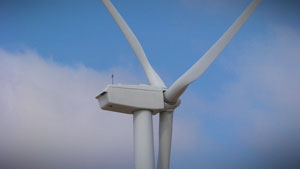Clean Energy
 Colorado has a long history of leading on clean energy and energy efficiency. Renewable energy supports our economy, protects public health, and puts us on a path towards a resilient future.
Colorado has a long history of leading on clean energy and energy efficiency. Renewable energy supports our economy, protects public health, and puts us on a path towards a resilient future.
Bills Tracked
 HB 1227 Electric Demand-Side Management Program Extension
HB 1227 Electric Demand-Side Management Program Extension
Energy efficiency programs have been successful in our state, saving money for families and businesses while reducing air pollution. A bill passed in 2007 created the Energy Efficiency Resource Standard, which requires energy savings goals for utilities and provides incentives for implementing energy efficiency programs. Since it began, the program has created over 40,000 jobs, avoided 1.85 million metric tons of carbon pollution, and saved Colorado consumers and businesses over a billion dollars. This program was set to expire in 2018, but this bill extends it through 2028.
Pro-Environment Vote: YES
Status: Became Law
 SB 301 Energy-related Statutes
SB 301 Energy-related Statutes
The Colorado Energy Office plays a valuable role in our state, including expanding the market for electric vehicles, helping working families access weatherization programs, and supporting energy efficiency for farmers and ranchers. A majority of its funding was set to expire this year, but instead of authorizing continued funding, Senate Republicans took the opportunity to hold the office hostage in an effort to provide a windfall for natural gas. In the end, efforts to preserve funding for this important office failed because of some Senators’ intransigence. We are scoring the House-amended final version of the bill that would have reauthorized the office, without the natural gas drilling components that were unrelated to it.
Pro-Environment Vote: YES
Status: Killed by Senate & House not Concurring
HB 1116 Continue Low-income Household Energy Assistance
The Low-income Energy Assistance Program (LEAP) helps working families by providing support for weatherization and energy efficiency programs. Since LEAP began in 2006, it has saved Colorado families over $140 million in energy costs. The source of the program’s funding was set to expire in 2018, but this bill extends the programs within the “conditional severance tax operational fund” through 2023 to continue aiding low-income families.
Pro-Environment Vote: YES
Status: Became Law
SB 105 Consumer Right to Know Electric Utility ChargesThis bill requires two utilities—Xcel Energy and Black Hills Energy—to provide their customers with more transparent utility bills. Customers will now receive bills that have easy-to-understand charts of their energy usage over twelve months and line-items of monthly charges that clarify rates and usage. This provides customers the information they need to reduce their energy use and make informed decisions.
Pro-Environment Vote: YES
Status: Became Law

